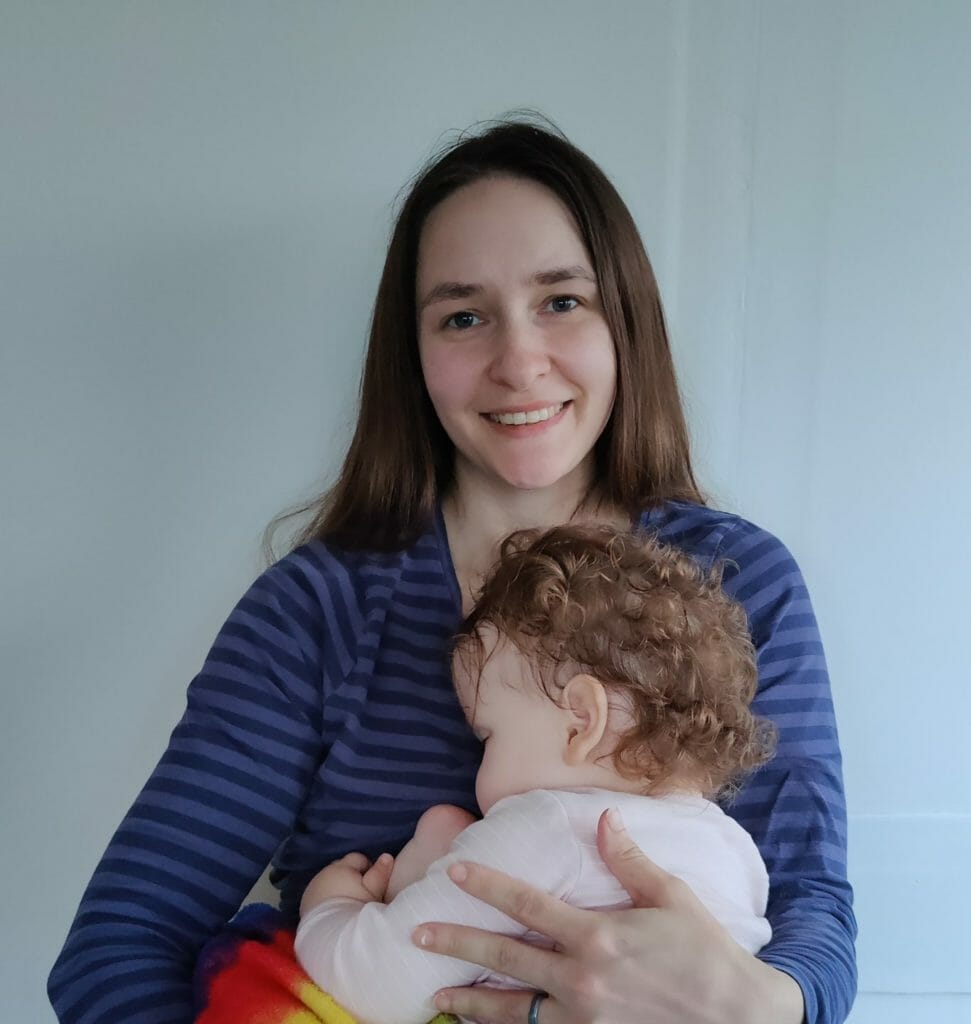The number of child protection investigations carried out in Scotland rose by a third within two years, previously unpublished data has revealed.
But despite a sharp rise of 33 per cent in a short period of time the number of children placed on the child protection register changed very little, prompting fears that some investigations should not have been conducted in the first place.
Child protection investigations are instigated in response to concerns that a child has been hurt, abused or neglected within the family or in the care of others.
But fears are now being raised by researcher Andy Bilson, emeritus professor of social work at University of Central Lancashire, that some investigations – which he says can be traumatic for families – maybe carried out without due cause.
He also claims differences in rates across the country mean families and children are facing “justice by geography”.
His analysis of unpublished Scottish Government data, collated over a five year period from 2012-13, suggests that by 2017-18 one in every 75 children in Scotland was investigated by authorities on child protection grounds.
Yet with almost three quarters of investigations not being upheld, Bilson claims the figures suggest that the higher number of investigations do not correlate with better identification of children at risk.
He is calling for better scrutiny of child protection practices and improvements in support to at-risk families.
Parents investigated by authorities due to fears for their children – claims later dismissed as unfounded – also told The Ferret the process “was not benign” and called for policy and practice to be reviewed.
The data, obtained by Bilson, shows a wide variation of rates of child protection investigations across different local authorities which he said raised “important issues of human rights and equity”.
His findings, due to be published in coming weeks, show that rates of investigations between 2015-16 and 2017-18 increased by 33 per cent across Scotland.
In some local authorities the increase was far higher, more than doubling in Dundee with a 119 per cent increase and rises of over 70 per cent in East Ayrshire, East Lothian, Stirling and West Dunbartonshire.
Meanwhile rates fell in Aberdeen City, Clackmannanshire, East Renfrewshire and the Shetland Islands.
The rate per 10,000 of all children aged 0 to 17 of
investigations varied almost 10-fold across local authorities from 36 in East Renfrewshire
to 354 in the Shetland Isles.
Best interests of the child
In total 14,106 child protection investigations were carried out across Scotland in 2017-18 but only 3,839 were placed on the child protection register.
The percentage of investigations that did not lead to action – 73 per cent – is higher than England where it is 67 per cent, Bilson noted in a research paper, shared with The Ferret.
The number of children on the child protection register at any one time has fallen from 2,668 in 2017 to 2,580 in 2020.
While local authorities stressed it was important that all investigations were carried out in the best interests of the child, Bilson claimed to have found evidence of poor practice.
He said: “They can only be justified if there is strong evidence that a child is at risk”.
Reform should be carried out in line with the Promise – Scotland’s care review, published in Feburary 2020 – which called for a “fundamental shift of thinking” about when a child should be removed from their family, he added.
The review based this call on the “overwhelming evidence of the lasting pain that removal has caused children, families and communities”.
What this means is that more families have been put through the pain and humiliation of being accused of harming a child without increasing the number of children found to be harmed. This represents bad and ineffective social work practice.
Professor Andy Bilson
Bilson added: “The increase in investigations wasn’t accompanied by an increase in child protection registrations.
“So what this means is that more families have been put through the pain and humiliation of being accused of harming a child without increasing the number of children found to be harmed. This represents bad and ineffective social work practice.
“Where children are investigated and no harm is found parents are unlikely to accept or ask for help for their child even if they need it. A better way to protect children is to provide help and support that is not based on accusations that children are being harmed.”
He said he was most concerned about the disparity of rates across the country, meaning that families in some local authorities were more likely to go through investigations that were subsequently deemed unfounded than others.
While previous research suggested that those from deprived homes are more likely to be investigated, he said the high rates in 2017-18 “did not map” with local authorities high on the index of multiple deprivation.
He continued: “What you see is a huge difference depending on the local authority and this isn’t explained by levels of deprivation in those areas.
“Your chances of being investigated depend on where you live – this is justice by geography.”

His calls were echoed by Taliah Drayak, a mother of eight from Orkney, who was investigated in 2018 after a doctor raised suspicions she was responsible for her two-year-old Breatrix’s complex conditions.
She said: “It’s clear when you look at these figures that this rise in investigations is not about a rise in children being harmed but a rise in fear about children being harmed.
“Yet child protection investigations are not benign – in fact the effects can be terrible. It’s such a shaming, stigmatising process. I think we really need to think about how child protection investigations can work better, and work with parents.”
Despite medical evidence that her daughter was admitted to hospital with sepsis, she was accused by one doctor at Aberdeen Children’s Hospital of poisoning her.
The toddler was taken into foster care during a child protection investigation that went on for 360 days. In January 2019, a hearing found no evidence of ill-treatment and Beatrix returned home. The case was then dropped.
But the investigation – which involved all of her children, aged 5-14, being taken for interview in a police car individually and doctors, teachers, friends and neighbours interviewed – has left a long shadow.
“Everyone was so positive about us but that didn’t seem to matter,” she told The Ferret.
“I went to hearings surrounded by professionals. They understood the process and had done it a hundred times. They had slept the night before. I had not. My life was on the line – theirs was not. From my perspective it was difficult not to feel that there was a set outcome. And I was being accused of being a monster.”
Afterwards you never trust yourself again. You’re scared to let your kids climb a tree incase they fall and no one believes you. The people who we thought were there to help us nearly destroyed our lives.
Taliah Drayak
She continued: “Afterwards you never trust yourself again. You’re scared to let your kids climb a tree incase they fall and no one believes you. The people who we thought were there to help us nearly destroyed our lives.”
She worries, too, about the “black mark” that having been investigated carries. There must be a better system, she argues. “I’m not saying that people should never be investigated. But how we do these investigations causes harm and that needs to be looked at.”
A Dundee City Council spokesperson said that a child protection order was only sought after “careful and thorough analysis of the individual circumstances”.
They added: “The professionals involved with the family must be satisfied that there is a risk of significant harm, and that immediate action is necessary.”
A Stirling Council spokesperson said its “statistical analysis and audit” of child protection measures “provides us with confidence that this work is thorough and that decisions are appropriate for the specific circumstances of each individual family”.
An East Lothian Council spokesperson added: “We realise that investigations can be difficult for families, and all of the professionals involved are mindful of that throughout the process. However it is important that, where serious concerns are raised, these concerns are properly interrogated.”
Referrals for child protection concerns are always investigated however do not always require formal child protection measures.
Beth Culshaw, West Dunbartonshire HSCP
Beth Culshaw, chief officer of West Dunbartonshire HSCP, said: “Referrals for child protection concerns are always investigated however do not always require formal child protection measures.
“As such, cases are not ‘dropped’ however regular reviews, involving families and a range of other professional partners provide ongoing oversight.”
She claimed any increase would also reflect referral rates from other agencies and insisted the approach of social work services was “always from the position of supporting families”.
When asked about Drayak’s case an NHS Grampian spokeswoman said it did not comment on individual cases adding: “Child protection is a priority for NHS Grampian to ensure children and young people are safe and protected from harm.”
Orkney Council declined to comment.
A Scottish Government spokesperson said that it was revising Scotland’s National Child Protection Guidance “which will support greater consistency in how statutory measures are used across the country”.
They said that where Child Protection Orders were not deemed necessary, cases went through “getting it right for every child (GIRFEC) processes which are in line with the Promise”.
This story was published in tandem with the Sunday National.
Cover image thanks to iStock/oozone















Most informative! Thank you.